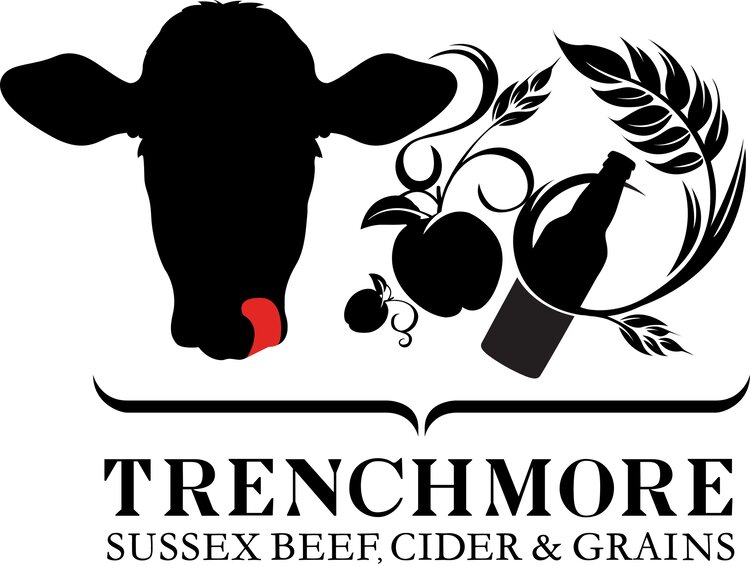Good afternoon,
Andrew is away for the next couple of weeks so Nev & I will be paddling intensely to keep afloat in his absence. Please bear with us in the meantime.
I took the last batch of this year’s Hubbards to our friends with a slaughterhouse in Ditchling yesterday which was, as it always is, a bittersweet journey. We have enjoyed having these feathered friends in the orchard but are pleased to be able to offer slow grown and well looked after poultry to local chefs and customers.
We received our first batch of birds in May and it has been a summer of learnings and labour. On their arrival, we turned big plastic containers, that were intended to transport used brewers grains from Hepworths Brewery to feed our cattle, into cosy brooders with heat lamps and bedding for 70 chicks. At 1 week old we upgraded them into former apple crates for a little more air ventilation.
We gradually weaned them to handle cooler climes and at 3-4 weeks old moved them outside to spend the rest of their days in the orchard. They lived in moving 4m x 3m chicken tractors, which kept them safe from predators whilst giving them constant access to grass. We moved each tractor up to 3 times a day so that they had plenty of fresh grass to eat, and plenty of fresh bugs and dirt to occupy themselves with.
Moving 4 tractors up to 3 times a day was labour intensive and hard work but it meant we spent more time with the birds, learning from their behaviours and enjoying their curious company. They moved about a lot and lived on a natural and healthy diet - as a result they have produced flavourful and succulent meat.
It was always intended as a summertime project because we fear the birds wouldn’t thrive outside in the colder and wetter months and so this will be our last batch of fresh poultry until next spring.
Wagyu shin ragu in the yard this weekend
We will be serving up warming bowls of slow cooked osso bucco shin ragu or seasonal vegan curry on Saturday.
Join us for lunch, a drink and a full bellied amble around the farm.
Please book so we know how much to cook….




















